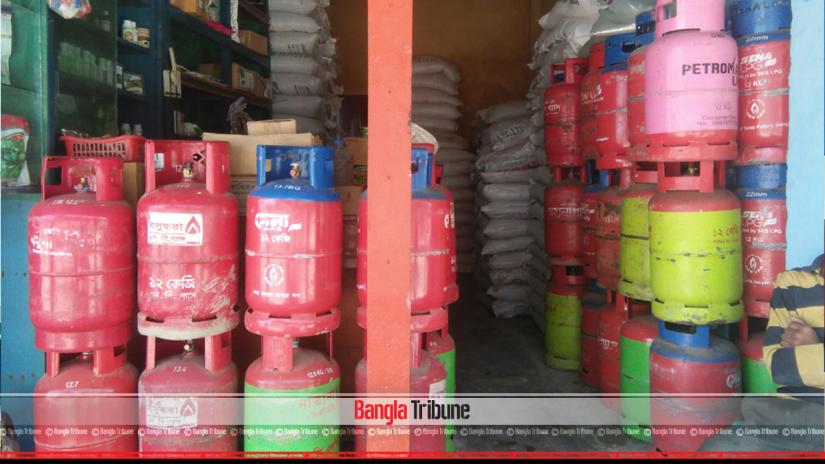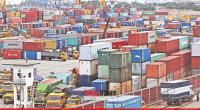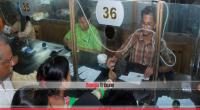 The demand for Liquefied Petroleum Gas has increased over the last few years given that the government has officially stopped giving permits for new gas connections.
The demand for Liquefied Petroleum Gas has increased over the last few years given that the government has officially stopped giving permits for new gas connections.
Energy experts claim that that LPG prices are all over the place as the government has not taken any effective steps to regulate the price in keeping with the demand.
Bangladesh Energy Regulatory Commission (BERC), on the other hand says that there’s nothing it can do if the distribution companies themselves don’t come up with proposals.
Back in 2017, State Minister for Power, Energy and Mineral Resource Nasrul Hamid had said that the government would soon draft a guideline to determine LPG prices but two years later, it is yet to be done.
Meanwhile, on Jun 18 of this year, the High Court issued a rule asking what the energy regulatory commission has done so far to regulate the prices.
The commission said that as per the rule, the companies have to propose prices after which it can be determined.
According to the government statistics, the demand for LPG is 1 million metric tonne but the current situation indicates that by 2025 the demand will peak to 3 million metric tonne.
Given the ever increasing demand, questions are now rife about the initiatives the government has taken to regulate and monitor such a large market.
“If gas connections are no longer given then LPG must be made easily attainable,” says energy specialist Shamsul Alam.
“The prices must be controlled through a regulatory body,” he added.
Alam said that they had filed a writ over the matter and the High Court asked (BERC) whether they will take any steps regarding the prices.
“Now the government must fix the prices otherwise the consumers will keep on suffering,” he said.
LPG is becoming steadily popular in rural areas for cooking as wood is becoming more difficult to find. BERC is legally bound to regulate all energy and power prices, it says that there is nothing it can do.
“The distribution companies have to apply for fixed prices for us to legally regulate prices,” BERC Chairman Monowar Islam.
He added that an organisation under Bangladesh Petroleum Corporation (BPC) went to them a few days ago and they had fixed the prices.
BPC is the only supplier of LPG gases in Bangladesh and supplies 16,000 metric tonne against the 1 million metric tonne demand.
The two state-owned LPG factories together produce 15,500 metric tonne of the cooking gas.
“We sell LPG for the lowest price in Bangladesh,” says BPC Chairman Shamsur Rahman.
He added that as the prime minister herself is the chief of the energy ministry, any decision regarding supplies and guidelines must come directly from her office.
With its own gas reserves depleting and seeking to almost double power capacity to 24,000 megawatt (MW) by 2021, Bangladesh is tapping cheap and plentiful supplies on world markets and investing heavily in Liquefied Natural Gas.
Bangladesh with its population of 160 million people, could import as much as 2,500 million cubic feet per day (mmcfd) of LNG, equivalent to around 17.5 million tonnes per year, by 2025, according to Nasrul Hamid.
 Business
Business
41345 hour(s) 39 minute(s) ago ;
Noon 12:33 ; Saturday ; Jul 05, 2025
No move to regulate LPG prices
Send
Shanchita Shitu
Published : 07:30, Jul 07, 2019 | Updated : 07:30, Jul 07, 2019
Published : 07:30, Jul 07, 2019 | Updated : 07:30, Jul 07, 2019
0 ...0 ...
/st/
Topics: Top Stories
- KOICA donates medical supplies to BSMMU
- 5 more flights to take back British nationals to London
- Covid19: Rajarbagh, Mohammadpur worst affected
- Momen joins UN solidarity song over COVID-19 combat
- Covid-19: OIC to hold special meeting
- WFP begins food distribution in Cox’s Bazar
- WFP begins food distribution in Cox’s Bazar
- 290 return home to Australia
- Third charter flight for US citizens to return home
- Dhaka proposes to postpone D8 Summit
Unauthorized use of news, image, information, etc published by Bangla Tribune is punishable by copyright law. Appropriate legal steps will be taken by the management against any person or body that infringes those laws.
Bangla Tribune is one of the most revered online newspapers in Bangladesh, due to its reputation of neutral coverage and incisive analysis.
F R Tower, 8/C Panthapath, Shukrabad, Dhaka-1207 | Phone: 58151324; 58151326, Fax: 58151329 | Mob: 01730794527, 01730794528






